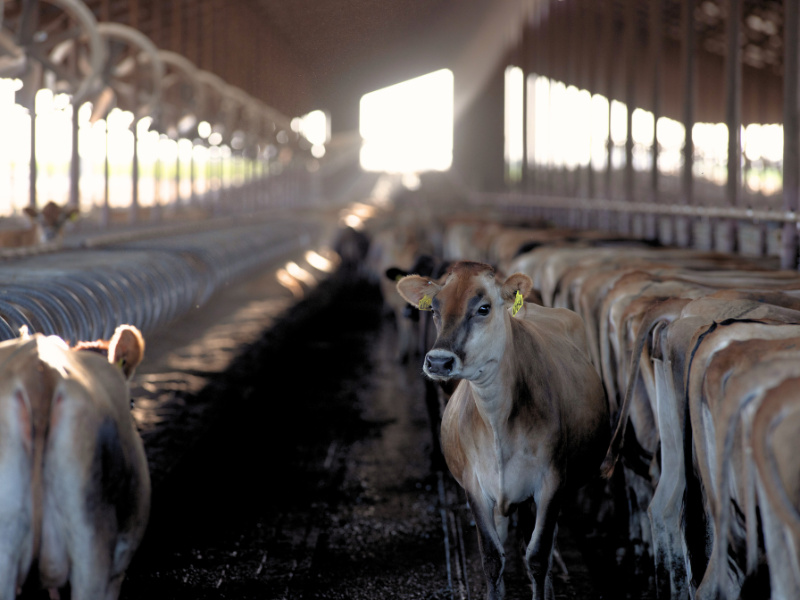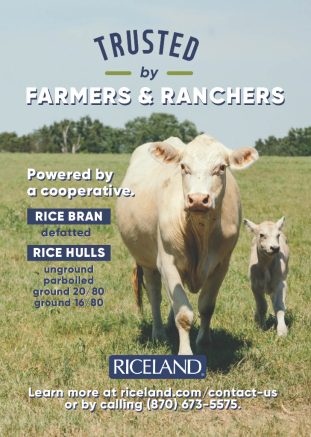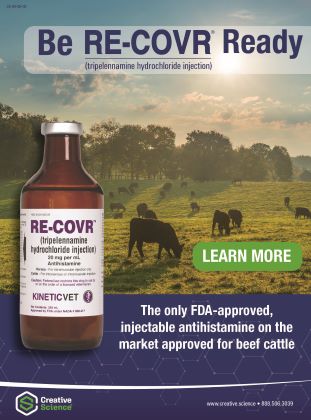What Does a Successful reproduction Program Look Like?

What does a successful reproduction program look like?
Data can highlight key profit drivers in your reproduction program to help you make better, more profitable decisions.
MADISON, Wis. [Sept. 11, 2024] – A cow’s ideal herd management cowcard has just four events – fresh, bred, confirmed pregnant and dry. While a herd of four-event cows is what to strive for, the reality is most experience hurdles along the way.
A successful reproduction program considers all the additional factors that affect a cow’s profitability. Combining the data collected regarding your cows’ health and reproduction with information on the four main events will help build a comprehensive profile for each cow.
 “The setbacks an animal experiences as a calf, heifer and cow are the difference between a productive cow and a profitable cow,” says Craig Walter, senior educator at VAS. “Without tracking and analyzing these events consistently, you are missing the bigger picture of your cows and your herd.”
“The setbacks an animal experiences as a calf, heifer and cow are the difference between a productive cow and a profitable cow,” says Craig Walter, senior educator at VAS. “Without tracking and analyzing these events consistently, you are missing the bigger picture of your cows and your herd.”Make educated, profitable breeding decisions
Your reproduction program requires you to make many decisions based on various factors and answer many questions. When should you first breed a heifer? What cows should you breed back? Should you use beef, sexed semen or conventional? How many replacement heifers should you keep? Which cows should be culled?
Herd management software and data can help you answer these questions and inform many parts of your reproduction program, including:
- First calving. The industry’s long-standing recommendation is an age at first calving between 23 and 24 months. Using data, you can decide when to inseminate heifers based on weight, height and age. This process allows you to find the optimal breeding age for your heifers, reducing the investment period and increasing returns sooner.
- Conventional, sexed or beef semen. Many herds are moving away from only using conventional semen and starting to use more beef or sexed semen. Herd management software helps highlight health events, milk production, genetics and other important factors to consider when choosing what type of semen or bull to use for breeding.
- Culling. Knowing when to cull a cow goes back to profitability and her return on investment. Look at her health events, their impact on production and treatment costs. Herd management software also allows you to evaluate cows individually and see where they rank in the herd, making it easy to pinpoint problem cows.
By bringing more context to your reproduction program, you can make better decisions to improve your bottom line and help raise a profitable herd.
Monitor more than milk production
Herd management software like DairyComp can help you monitor other key profit drivers beyond milk production, that influence your reproduction decisions. Health costs, conception and pregnancy rates and activity monitoring data provide additional context for your herd and make it easier to identify outlier cows impacting your bottom line.
“Health and reproduction features in herd management software have changed how we look at breeding strategy and herd management,” says Walter. “A complete data picture allows you to make better decisions so you can gain the greatest return on investment with your calves, heifers and cows.”
Herd management software with health-focused features can evaluate the profitability of your herd on an individual cow level and inform management decisions. For example, HealthVAL an insight tool available to DairyComp users, assigns each animal a Health Index value, which is calculated based on age and total cost of their health events.
“Diving into your herd’s health by analyzing case counts and occurrences for standard health events like mastitis, ketosis, metritis and pneumonia helps inform you to make smart management and reproduction decisions,” says Walter.
With a clearer picture of your herd’s health, you can better understand where your herd is today and where opportunities lie for future growth.
Use innovative technology to your advantage
“With data and technology like mobile devices, scanners and activity monitors, we are continuing to move the goal post for reproduction, reaching conception and pregnancy rates we didn’t think were achievable,” says Walter.
Innovations in technology enable you to easily capture and analyze your herd’s data. By integrating these tools with your herd management software, you can connect data from across your farm, equipping you with all the information you need to make more informed reproductive management decisions.
Many animal monitoring systems integrate with herd management software, like DairyComp, bringing together important activity data with general herd information to inform reproductive decisions. Some monitoring systems have advanced integration capabilities, like automating protocols based on individual cow behavior.
For example, if a cow is entered as pregnant in your herd management software and shows a heat with the monitoring system, she can be automatically added to your vet check list. This helps ensure cows do not make it too far into their lactation or dry-off without being pregnant.
Summary
“Take time to explore the capabilities of your herd management software, including integrations. You might discover new ways to enhance your reproduction program, making it even stronger and your farm more profitable,” says Walter.
Visit VAS.com or contact a VAS team member to explore your herd management solutions and ensure you’re managing your reproductive program as efficiently as possible.
Content and images provided by

VAS is the global market leader in connected farm management systems. For 40 years, VAS has been the operating system of choice for the most innovative dairies. VAS’ software and information solutions help collect and connect a farm’s data – from herd management to feed performance, tracking and more. These insights are a source of truth, empowering producers and their trusted advisors to make profit-driven and sustainable management decisions. At the forefront of thought leadership within the dairy industry, VAS is trusted by the producers we serve and the greater dairy community.
October 2024
For Leading Cattle Industry News: Home – American Cattlemen




